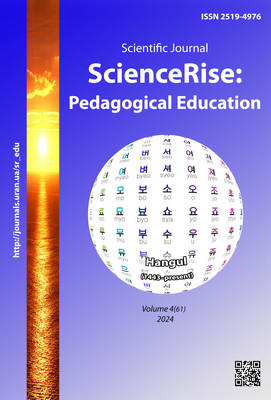Foreign experience of software testing engineers training: analysis of educational standards and programs of European universities
DOI:
https://doi.org/10.15587/2519-4984.2024.318763Keywords:
software engineering, software testing, educational standards, training program, European experienceAbstract
The article explores the European educational system's approach to training software testing specialists. It contains an analysis of certain key standards for IT engineers training in Europe, such as the Standards and Guidelines for Quality Assurance in the European Higher Education Area (ESG), the European Association for Quality Assurance in Higher Education (ENQA) criteria, and national accreditation standards like the Polish Accreditation Committee (PKA), the German Accreditation Council (GAC), and the UK’s Engineering Council (ECUK). The study emphasizes the place and teaching methods of software testing theory and practice within university curriculum guidelines, assessing both an availability of dedicated testing disciplines and the appearance of testing topics/modules in more general engineering disciplines. Despite similar interpretations of basic concepts and practices in software testing, opinions on teaching methodologies and the representation of both theoretical and practical aspects of it vary among the reviewed standards. Additionally, the research examines training programs at leading European universities to identify how software testing and quality assurance are reflected in their curricula. This analysis covers full-time training programs for students in computer science, software engineering, and related fields. The study explores programs in both general and basic disciplines within IT and those specific to certain technological or organizational areas, such as mobile device development or IT project management. The content of subjects, modules, lectures, and extracurricular work tasks available in open sources was also analyzed. Furthermore, the research investigates how these institutions incorporate practical training, such as internships and project-based learning, to ensure students gain hands-on experience in software testing and quality assurance
References
- Tramontana, P., Marín, B., Paiva, A. C. R., Mendes, A., Vos, T. E. J., Amalfitano, D. et al. (2024). State of the Practice in Software Testing Teaching in Four European Countries. 2024 IEEE Conference on Software Testing, Verification and Validation (ICST). Toronto, 59–69. https://doi.org/10.1109/icst60714.2024.00015
- Garousi, V., Rainer, A., Lauvås, P., Arcuri, A. (2020). Software-testing education: A systematic literature mapping. Journal of Systems and Software, 165, 110570. https://doi.org/10.1016/j.jss.2020.110570
- Dill, D., Beerkens, M. (2010). Public and private regulation of higher education: A comparative analysis of systems, purposes, and effects. Springer.
- Towhidnejad, M., Ochoa, O., Kiselev, A. (2000). An analysis of the software engineering curriculum using the guideline models. Embry-Riddle Aeronautical University. Daytona Beach.
- Avsheniuk, N., Diachenko, L., Kotun, K. (2017). Zarubizhnyi dosvid profesiinoi pidhotovky vchyteliv. Kyiv: DKS "Tsentr", 83.
- Seiko, N., Yershov, M.-O. (2021). Developing it education: foreign practices. Ukrainian Educational Journal, 4, 54–64. https://doi.org/10.32405/2411-1317-2021-4-54-64
- Bolotina, V. (2024). Domestic and foreign experience in forming the professional competences of bachelors in the information technology field. Humanities Science Current Issues, 1 (73), 276–281. https://doi.org/10.24919/2308-4863/73-1-42
- Matviichuk-Yudina, O. V. (2017). Analiz zarubizhnoho dosvidu formuvannia robochykh planiv ta osvitnikh prohram pidhotovky fakhivtsiv informatsiinykh tekhnolohii spetsialnosti «Kiberbezpeka». Pedahohichni nauky: teoriia, istoriia, innovatsiini tekhnolohii, 7 (71), 3–14.
- Polish Accreditation Committee (PKA). Available at: https://www.pka.edu.pl Last accessed: 14.10.2024
- Computer Science – Mobile Software Developer. WSB Merito University in Poznań. Available at: https://www.merito.pl/english/poznan/our-offer/bachelors-degree/programs/computer-science-mobile-software-developer Last accessed: 14.10.2024
- ASIIN Criteria for the Accreditation. Available at: https://www.asiin.de/en/programme-accreditation/quality-criteria.html Last accessed: 14.10.2024
- Accredited Degree Programmes ASIIN. Available at: https://www.asiin-ev.de/en/accreditation/accredited-programs/ Last accessed: 14.10.2024
- TUM Computer Science Bachelor's Program. Technical University of Munich. Available at: https://www.in.tum.de/en/for-prospective-students/bachelor-programs/computer-science-bsc/overview/ Last accessed: 14.10.2024
- Accreditation of Higher Education programmes. Engineering Council. Available at: https://www.engc.org.uk/education-skills/accreditation-of-higher-education-programmes/ Last accessed: 14.10.2024
- Department of Computing. Imperial College London. Available at: https://www.imperial.ac.uk/computing/prospective-students/courses/ Last accessed: 14.10.2024
Downloads
Published
How to Cite
Issue
Section
License
Copyright (c) 2024 Oleksandr Гура

This work is licensed under a Creative Commons Attribution 4.0 International License.
Our journal abides by the Creative Commons CC BY copyright rights and permissions for open access journals.
Authors, who are published in this journal, agree to the following conditions:
1. The authors reserve the right to authorship of the work and pass the first publication right of this work to the journal under the terms of a Creative Commons CC BY, which allows others to freely distribute the published research with the obligatory reference to the authors of the original work and the first publication of the work in this journal.
2. The authors have the right to conclude separate supplement agreements that relate to non-exclusive work distribution in the form in which it has been published by the journal (for example, to upload the work to the online storage of the journal or publish it as part of a monograph), provided that the reference to the first publication of the work in this journal is included.







